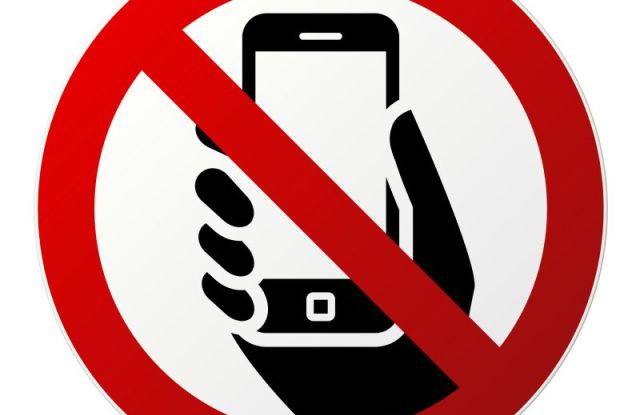Unplugging the cyborg self

 I remember in 1984 watching “The Terminator” in the theater. Machines take over the world and cyborgs (part human, part machine) are their instrument of destruction.
I remember in 1984 watching “The Terminator” in the theater. Machines take over the world and cyborgs (part human, part machine) are their instrument of destruction.
Karen was nine months pregnant and the pace of the movie was helping speed the whole process along. By the time Schwarzenegger’s electronic eye had blinked off for good, the contractions had started.
This morning I was reflecting and realized that, in a way, I’ve become like a cyborg. Maybe you can relate. There’s the human me that just made coffee and has our dog Whimsy laying next to me as I write.
And then, there’s the Facebook-me, the Twitter-me, the email-me, and the blog-me. Part human, part machine – a cyborg-Seth.
I was thinking about that because today between 6 a.m. and noon, in a specially protected and cooled room in Atlanta, our computer servers have been shut down to be serviced.
For these six hours, the cyborg-me is out of commission. No blogs or email. I’m left with just my thoughts. It’s refreshing.
Yes, our cyborg-selves are more efficient. We multi-task. We create value at light speed. But in the process, we lose touch with our human side. My spirit becomes dulled from dis-use.
This past week, a good friend reached out to me on Facebook to communicate something that hurt him. As humans, we love each other. As cyborgs, tapping out digital signals with our flesh and bone fingers, we can only go so far.
The Bible tells us that we’re composed of three parts – body, soul, and spirit. Digital communication over distance is soulish. You need to be in a person’s presence to catch their spirit and read their body language.
The cyborg-self as an efficiency tool can be a gift, but it must be managed. We may look human enough, but machines can take over our world and turn us into diminished versions of ourselves.
The idea of a Terminator-like global apocalypse may be science fiction, but if the “you” that people know is your cyborg-self, then you may do well to evaluate if your world hasn’t narrowed more than you realize.
People need to be in your presence. They need to hear your laughter and see you wipe your tears. They need to feel your spirit.
You may need to unplug to recover the best part of yourself.
Comments (5)
Leave a Reply Cancel reply
More Posts
![]()



This was an excellent reminder Seth. Thanks for brining things into focus. You are loved.
It would probably shock a lot of us if we could see the number of hours we lose everyday from real life while on the internet. There are trackers like meetimer that actually do that, but I dont think any of us are really willing to see the reality of it.
Biblical, what is the difference between spirit and soul?
It’s been 13 years since you asked this question, Caitlin. I’ve thought a lot about it. Honestly, I don’t like the word “soul” – I always thought a soul was the same thing as your spirit. But I’ve been introduced to another way of defining it that helps. This definition sees the soul as the elements of the mind that relate to our human experience – our thoughts, emotions, desires, personality, experiences and intellect. As I understand it, the spirit is immutable, whereas the soul is changeable based on how we walk through life. Let’s look at Scripture on the subject:
The soul generally refers to the essence of a person’s being and life force. In Scripture, the soul is often associated with:
The whole person (Genesis 2:7)
The seat of emotions, desires, and personality (Psalm 42:1-2)
The mind and consciousness (Psalm 139:14)
The soul is seen as the immaterial part of a human that animates the body and gives it life. It encompasses our mind, will, and emotions.
The spirit is described as the immaterial part of humanity that connects with God. Key aspects of the spirit include:
It’s the part of us that can interact with God, who is spirit (John 4:24)
It’s what becomes alive in believers through regeneration (Ephesians 2:1-5)
It’s associated with our ability to have a relationship with God (1 Corinthians 2:11)
The spirit is viewed as the deepest part of our being, enabling us to commune with God2.
While soul and spirit are closely related, the Bible does make some distinctions:
Hebrews 4:12 indicates they can be divided: “For the word of God is living and active, sharper than any two-edged sword, piercing to the division of soul and of spirit, of joints and of marrow, and discerning the thoughts and intentions of the heart.”
1 Thessalonians 5:23 lists them separately: “Now may the God of peace himself sanctify you completely, and may your whole spirit and soul and body be kept blameless at the coming of our Lord Jesus Christ.”14
Key Differences: The soul is often associated with our human personality, while the spirit is linked to our relationship with God.
Focus: The soul tends to be self-focused, while the spirit is God-focused.
It’s important to note that while these distinctions exist, soul and spirit are also closely intertwined and sometimes used interchangeably in Scripture.
“Yes, our cyborg-selves are more efficient.”
I suppose it depends how you define efficient. As you point out, it’s not necessarily helping us become more efficient in being human to one another.